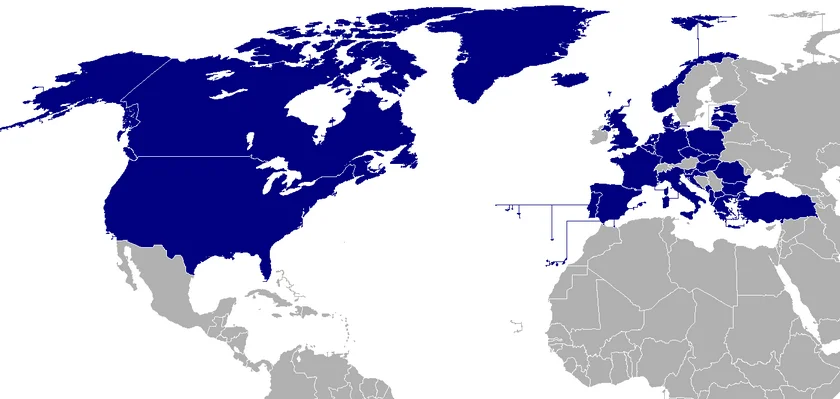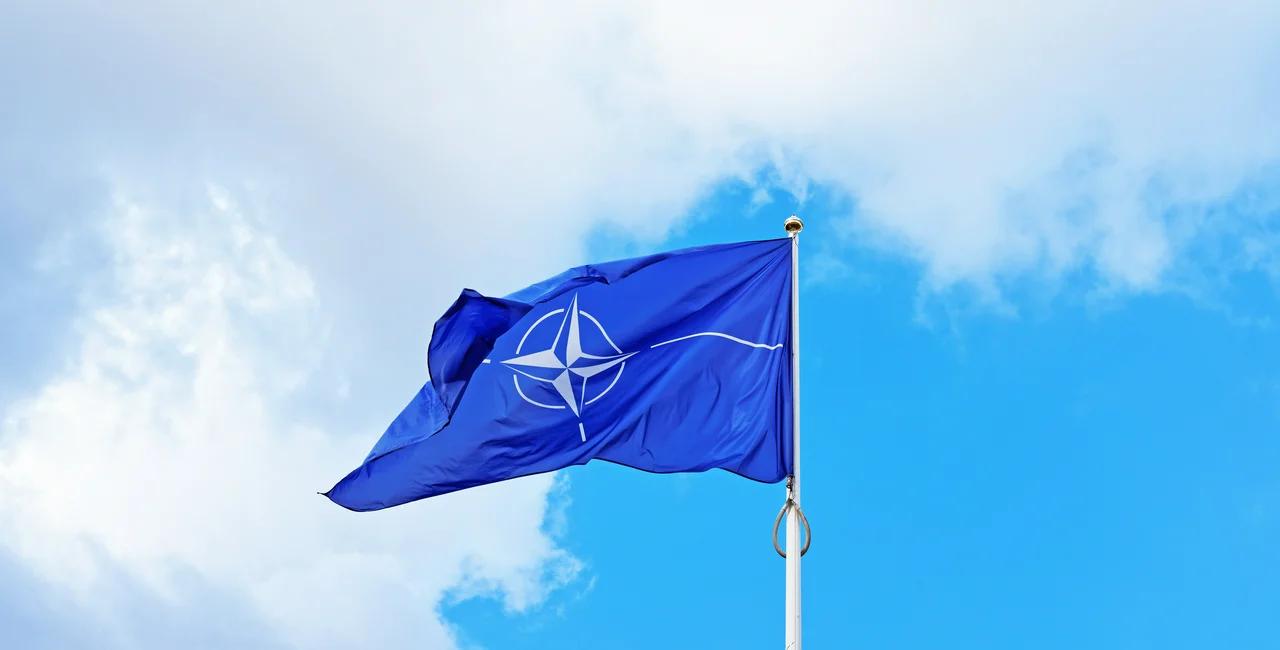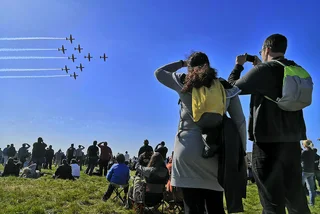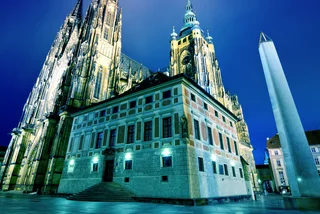Last weekend marked 23 years since the Czech Republic joined the North Atlantic Treaty Organization, known worldwide through its acronym NATO. By joining NATO on March 12, 1999, the Czech Republic entered a defense alliance guaranteeing that if one state is attacked, all other members are at war with the aggressor, a rule enshrined in Article 5 of the Treaty.
NATO was established as a commitment to collective security following the end of the Second World War and the rise of Communism in Eastern Europe. Original member states on the western side of the Iron Curtain were the U.S., Great Britain, France, Portugal, Norway, the Netherlands, Luxembourg, Italy, Iceland, Denmark, Canada, and Belgium.
PARTNER ARTICLE
The expansion of NATO to the Czech Republic, Hungary and Poland was advocated by U.S. Secretary of State Madeleine Albright. After NATO decided to admit her homeland, Albright said the move would mean the country's integration into the European community "fully, finally and forever."
The ceremony at which the Treaty was signed took place in the Truman Library in Independence, Missouri.

Czechia subsequently cemented its position at the heart of Europe by joining the European Union in 2004. But it was accession to NATO which marked the first major step in the integration of former Eastern-bloc state into the Western international alliance.
As well as committing to go to war for each other, NATO member states also agree to targets for improving the bloc’s security. Members are expected to spend at least 2 percent of their annual GDP on defense, although few actually meet this target.
The Czech Republic’s current level of defense spending is only 1.35 percent of GDP. In the wake of Russia's invasion of Ukraine, lackluster Czech defense spending has come in for heavy criticism, with military heads claiming the armed forces need significant investment to be ready to fight a large-scale ground war.
NATO membership also facilitates the movement of military personnel and equipment between member states for joint exercises and operations. As a result of Russia’s invasion of Ukraine, a significant strengthening of NATO’s eastern flank is expected. The Slovak government has already approved a move to station a contingent of Czech soldiers in Slovakia following the conflict.
NATO missions in which the Czech Republic has participated include safeguarding security in South-East Europe within the NATO KFOR mission in Kosovo and EU ALTHEA operation in Bosnia-Herzegovina, participating in training operations in Iraq, and fighting in Afghanistan.
Ukraine’s desire to join NATO was a key factor in the build-up to Russia’s invasion at the end of February. But the defense alliance’s expansion eastward since the fall of Communism has long been a major point of disagreement between the West and Russia.
Vladimir Putin has claimed the leaders of NATO lied to Russia after the dissolution of the Soviet Union, promising that NATO had no wish to expand eastward. Despite NATO’s stated role as a defensive organization, Russia has long seen NATO as a threat to its own security.
Whether or not Putin’s claims are true, the Czech Republic’s accession along with the three other Visegrád Four states, Hungary, Poland was the start of a process later viewed with paranoia by Moscow.
In 2007, Putin famously accused the West of breaking promises on the non-expansion of NATO, asking "Why do you need to move your military infrastructure to our borders?" After the entry of Visegrád states, other additions included the Baltic states and countries in South-East Europe.

The question of NATO membership for Ukraine remains a vitally important aspect of the present conflict. Prior to its invasion, Russia claimed that Ukraine's aspirations to join NATO were its main point of concern, and demanded promises that the country would never be admitted.
It's unclear whether Russia would now consider a retraction of Ukraine's NATO membership wishes sufficient to end its invasion, though. The entry of Russian troops into Ukraine is now profiled as a mission to "de-nazify" the country, suggesting an ideological impulse which the removal of the possibility of NATO membership would not solve.
Yet one thing is clear: if Russia invades any NATO member bordering Ukraine, it will automatically be at war with the entire alliance, including the U.S. Wariness of this threat is behind the stationing of Czech troops in Slovakia and calls for the Czech armed forces to receive significant investment.
Fears of a war between Russia and NATO have grown in recent days with reports that Russia is expected to bomb a Ukrainian airport in Uzhhorod, which is less than two kilometers from the Slovak border.
Such an attack would pose the greatest risk yet of Russian aggression spilling over into NATO territory.












 Reading time: 3 minutes
Reading time: 3 minutes 





























